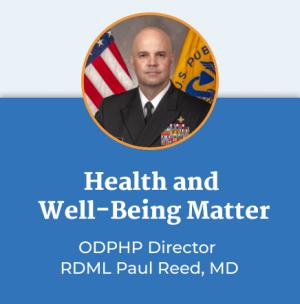ODPHP Director
ODPHP guides the nation toward better health through disease prevention and health promotion efforts. Health and Well-Being Matter is a blog series from the ODPHP Director that features information about timely national public health priorities, observances, events, and initiatives. Read the Director's thoughts on efforts to improve health and well-being for all people.
